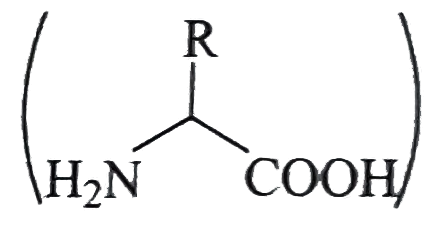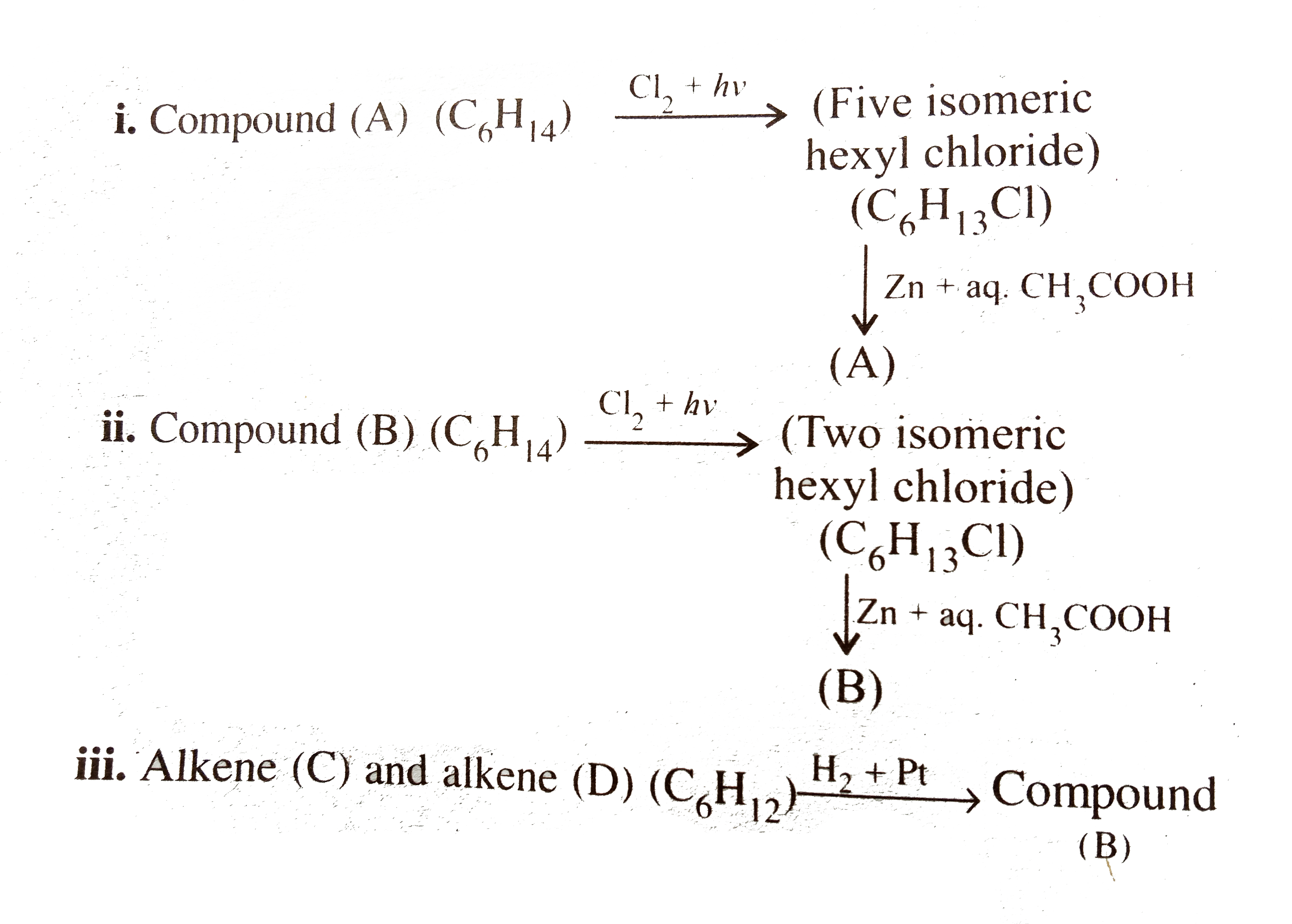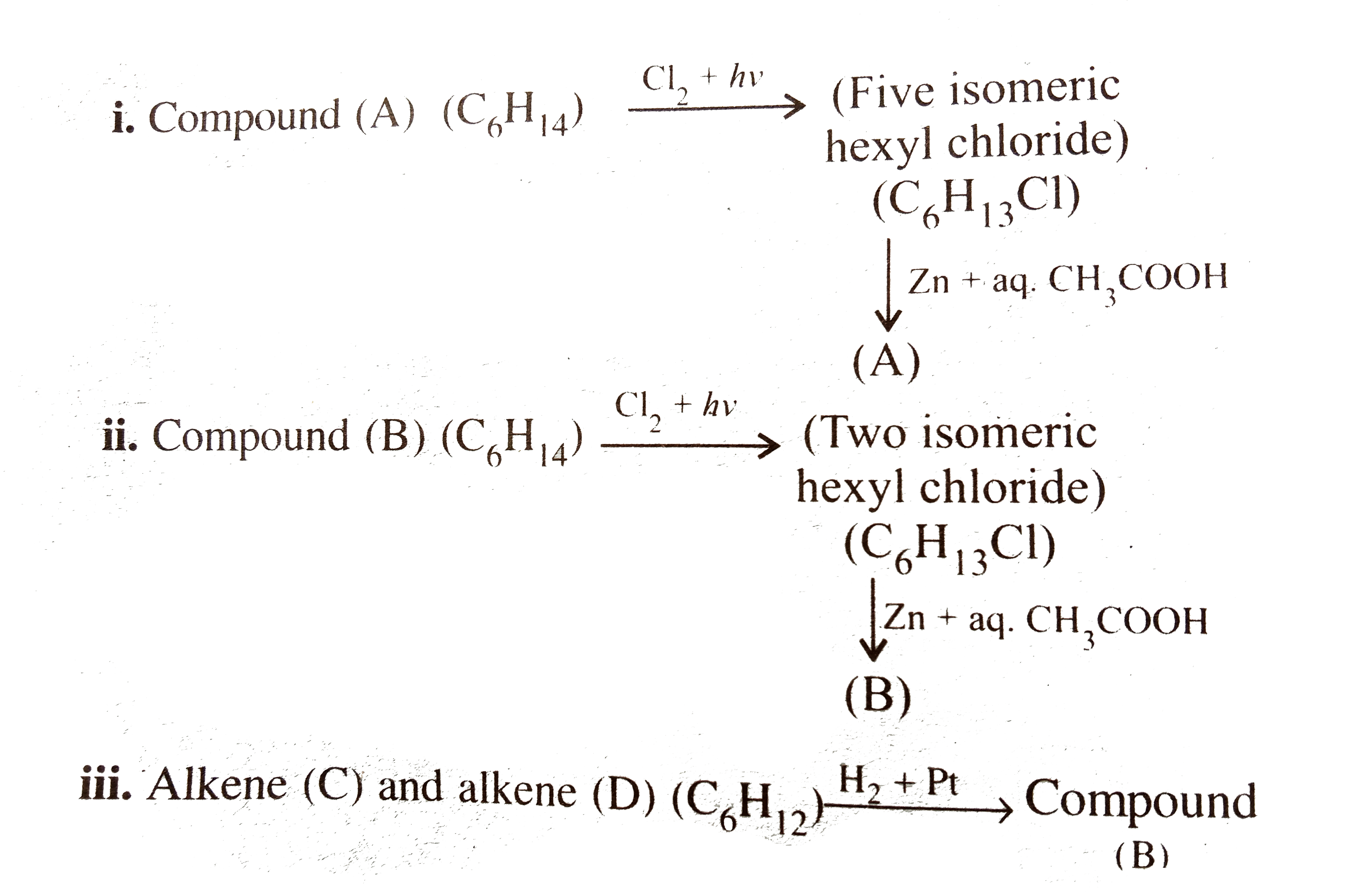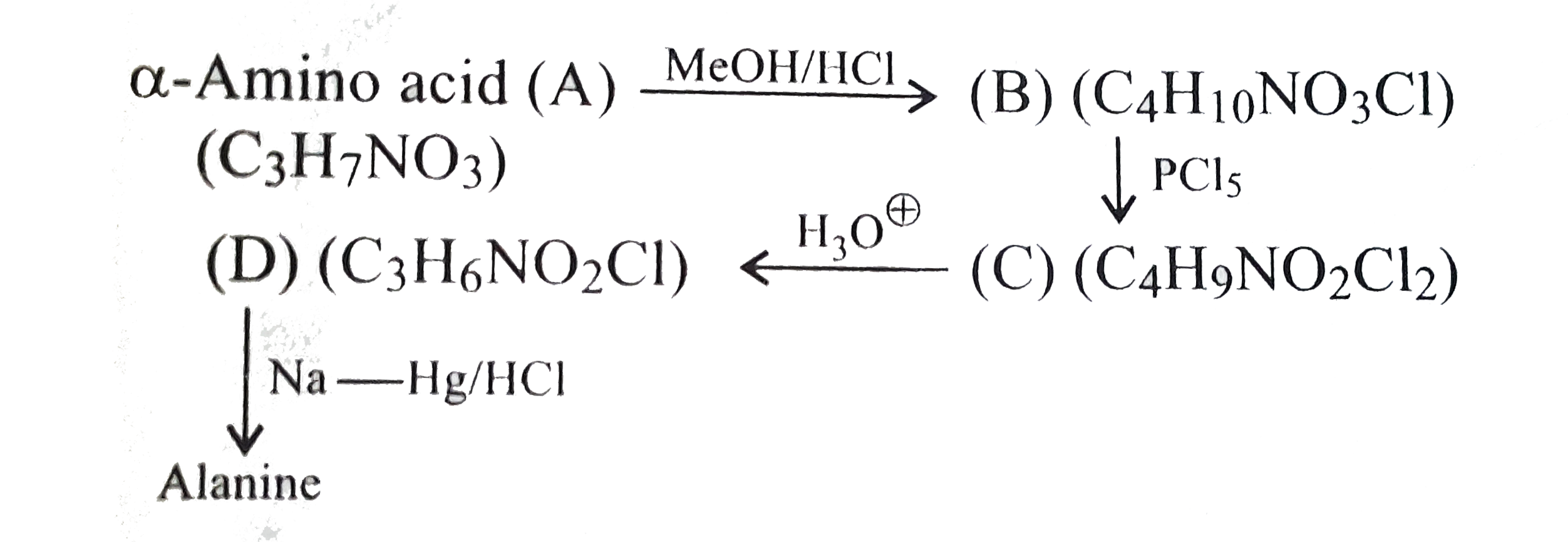
Compound (B) is:
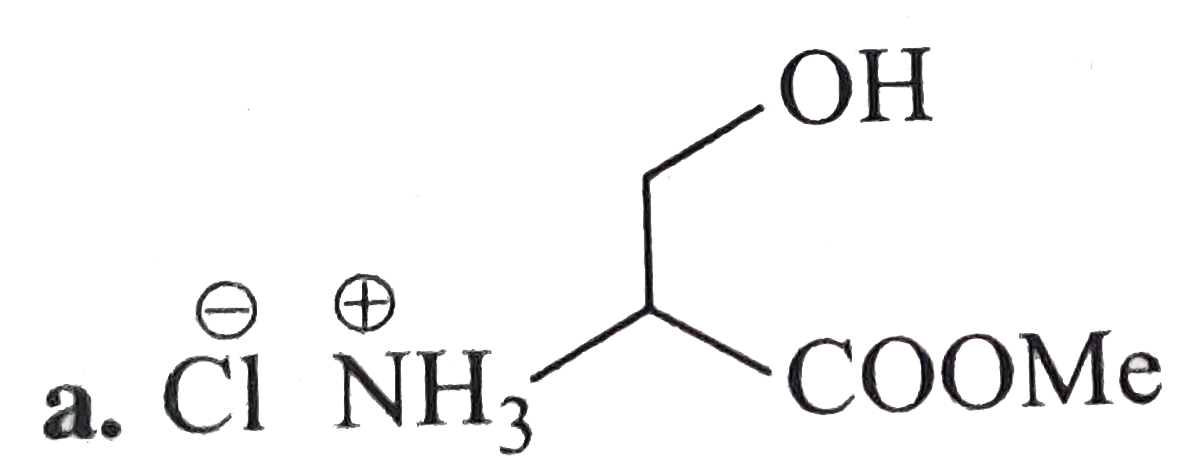
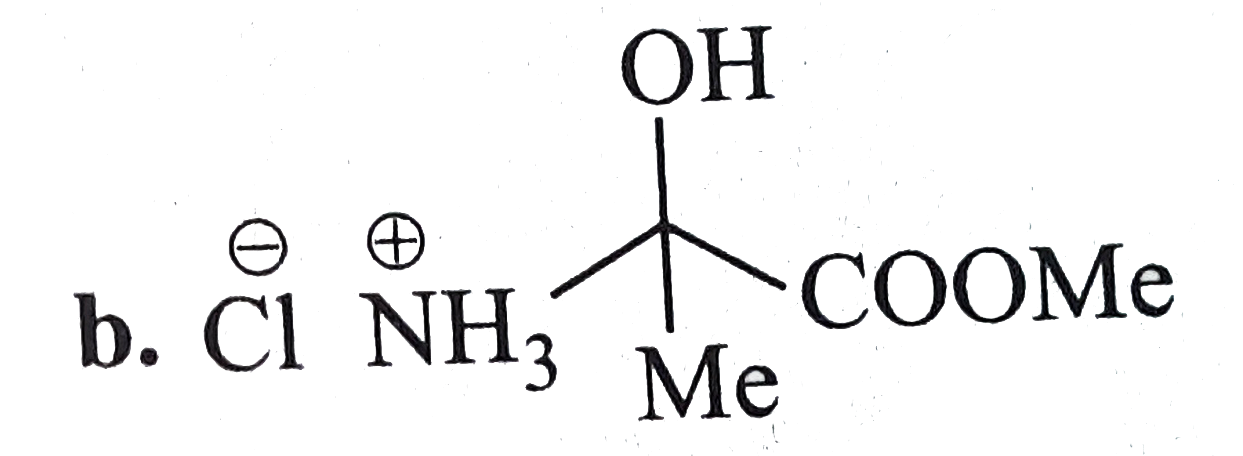
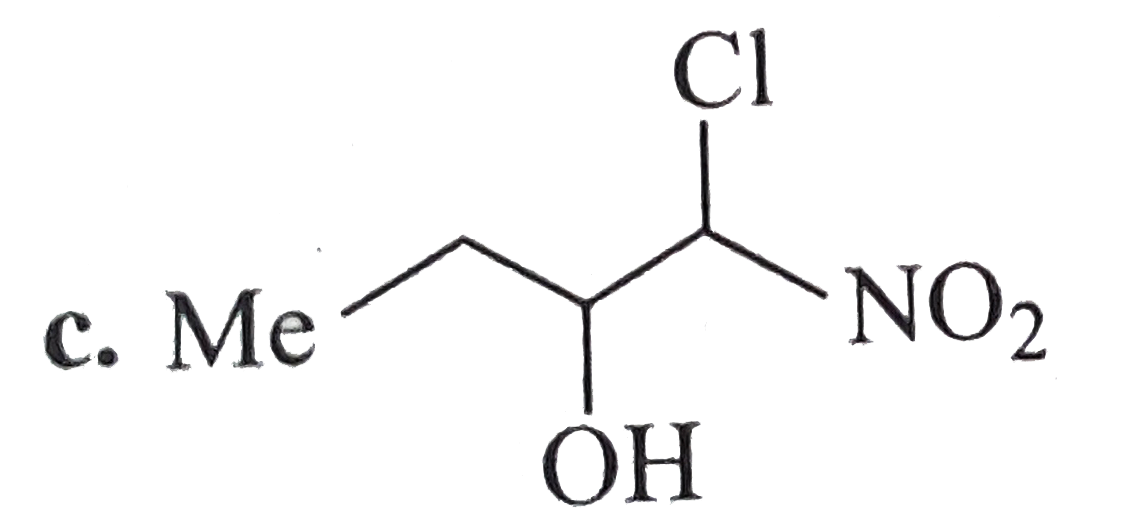
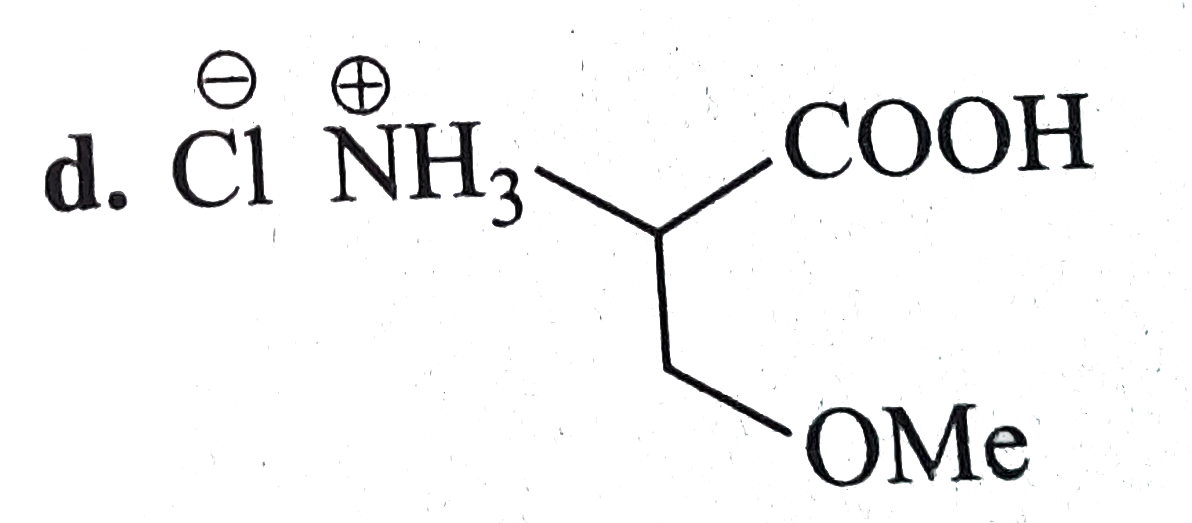
The correct Answer is:A
Topper's Solved these Questions
- BOOK - CENGAGE CHEMISTRY ENGLISHCHAPTER - BIOMOLECULESEXERCISE - Exercises (Multiple Correcttype)30videos
BIOMOLECULES
- BOOK - CENGAGE CHEMISTRY ENGLISHCHAPTER - BIOMOLECULESEXERCISE - Exercises (Single Correcttype)80videos
BIOMOLECULES
- BOOK - CENGAGE CHEMISTRY ENGLISHCHAPTER - BIOMOLECULESEXERCISE - Exercises (Concept Application)25videos
BIOMOLECULES
- BOOK - CENGAGE CHEMISTRY ENGLISHCHAPTER - AROMATIC COMPOUNDS AND ALKYL AND ARYL HALIDES EXERCISE - Archives Subjective Type4videos
AROMATIC COMPOUNDS AND ALKYL AND ARYL HALIDES
- BOOK - CENGAGE CHEMISTRY ENGLISHCHAPTER - CARBOXYLIC ACIDS AND THEIR DERIVATIVESEXERCISE - Exercises Archives (Analytical And Descriptive)34videos
CARBOXYLIC ACIDS AND THEIR DERIVATIVES
Similar Questions
Knowledge Check
- Question 1 - Select One

Find structure of compound B :A B
B C
C D
D
Reduction of hexose A (molecular formula C6H12O6) with sodium borohydride gives compound B and C. Compound B is optically inactive, whereas compound C is optically active. Which of the following is compound A?
View Solution
What is compound (B) and how is it formed ?View SolutionA compound (A) is formed by the reaction of ethylene with bromine which on reacting with aqueous KOH gives a compound (B). The compound (B) can also be prepared by the reaction of ethylene with the following:
View SolutionKetone (A) NH2OH.HCl−−−−−−−−→ (B) H⊕−−→

The ketone (A) and compound (B), respectively, are:
Ketone (A)
I.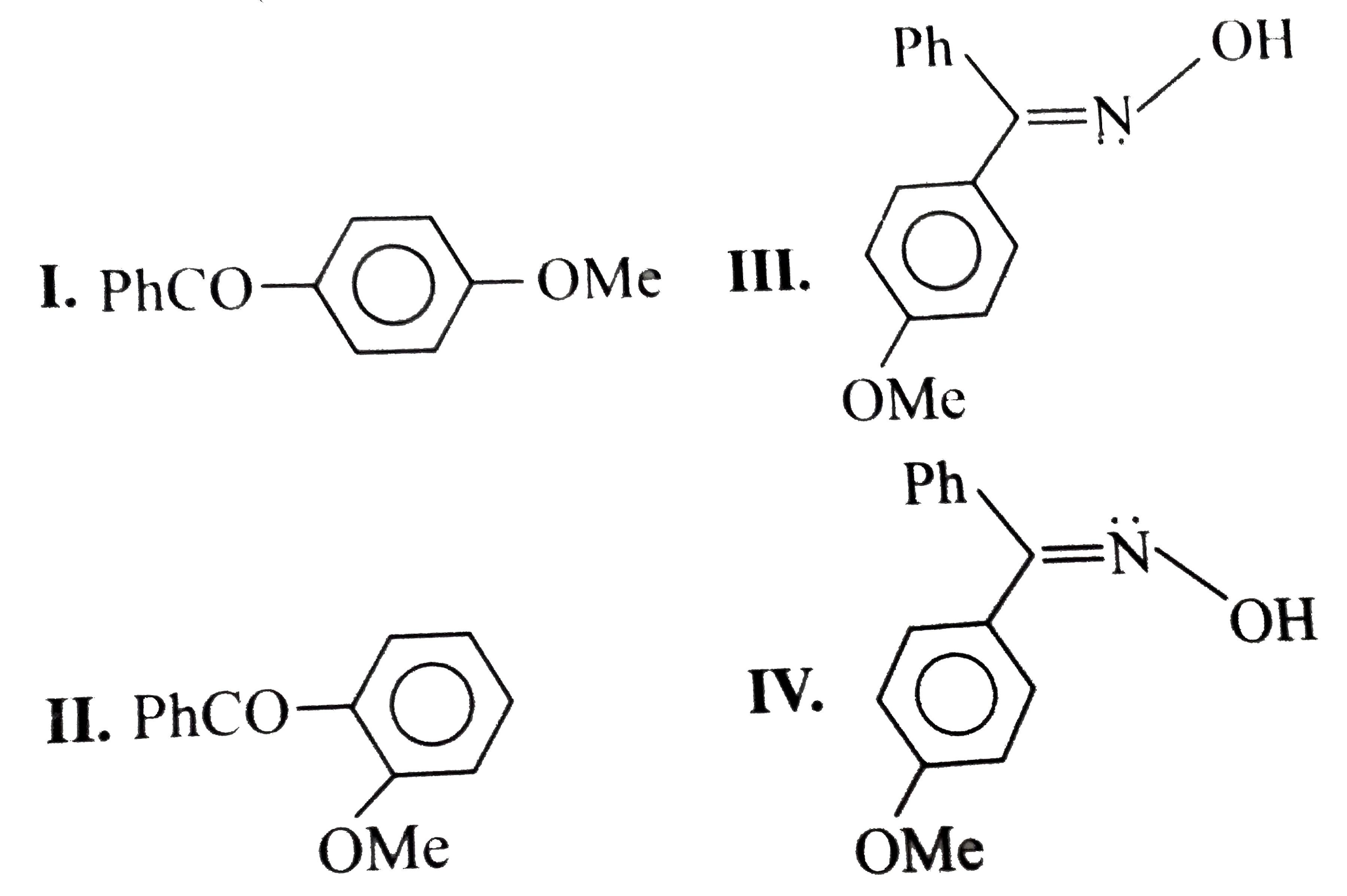
Compound (B)View SolutionAn organic compound (A) , C4H8Cl2 on hydrolysis forms another compound (B) , C4H8O.
If (B) does not responds to iodo form test , then identify possible structures of (A) and (B).View SolutionAldehyde (A) NH2OH.HCl−−−−−−−−→ (B) H⊕−−→MeNH2+HCOOH
Aldehyde (A) and compound (B), respectively are:
Aldehyde (A)
I. MeCHO II. HCHO
Compound (B)
III.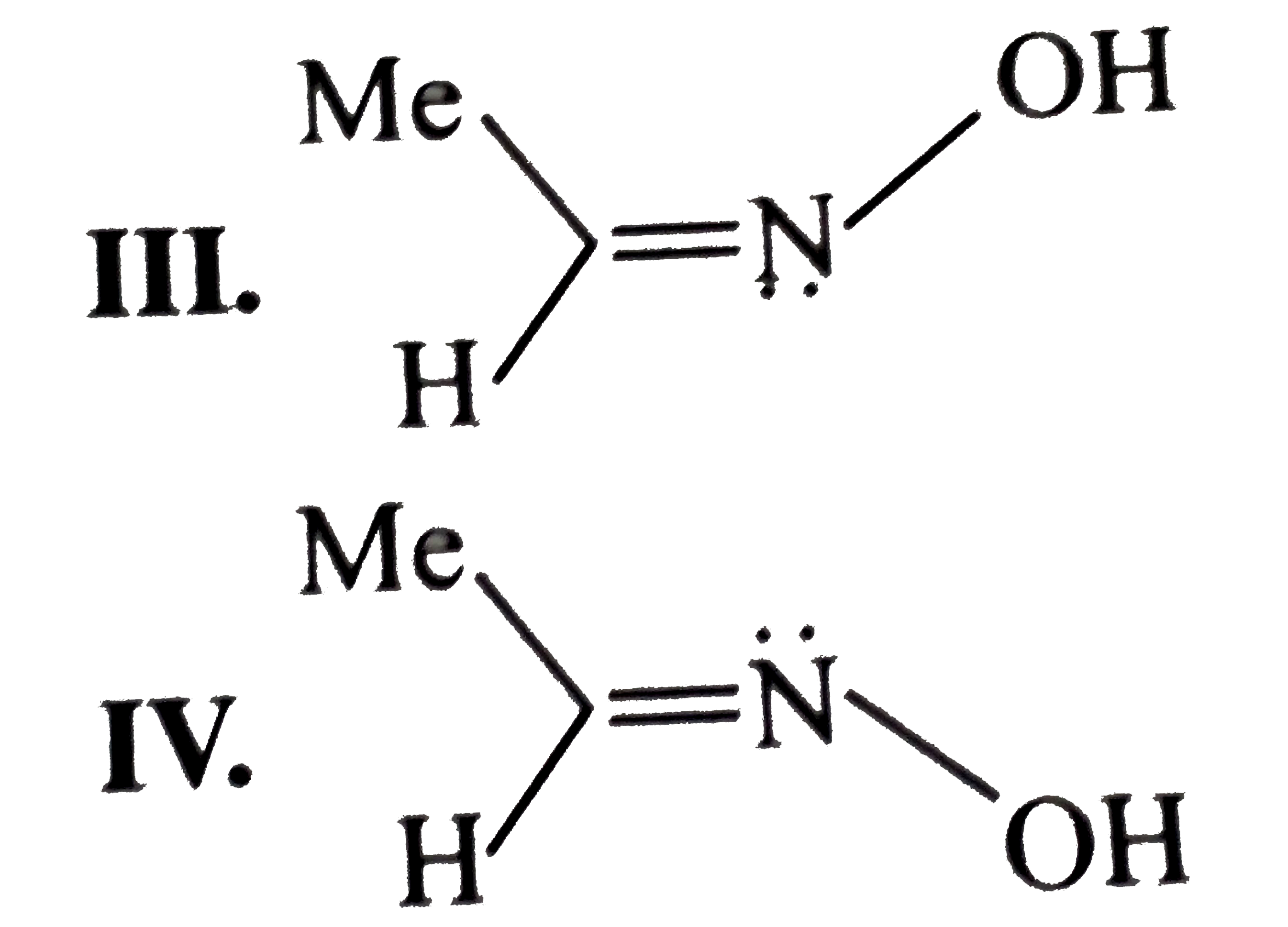 View Solution
View SolutionThe compound (A) in the previous question is further hydrolysed in dilute acidic medium to give compounds (B) and (C). The compounds (B) and (C) are :
View Solution


